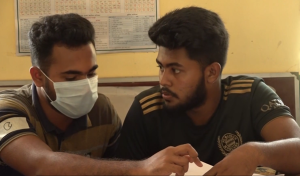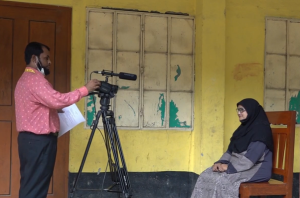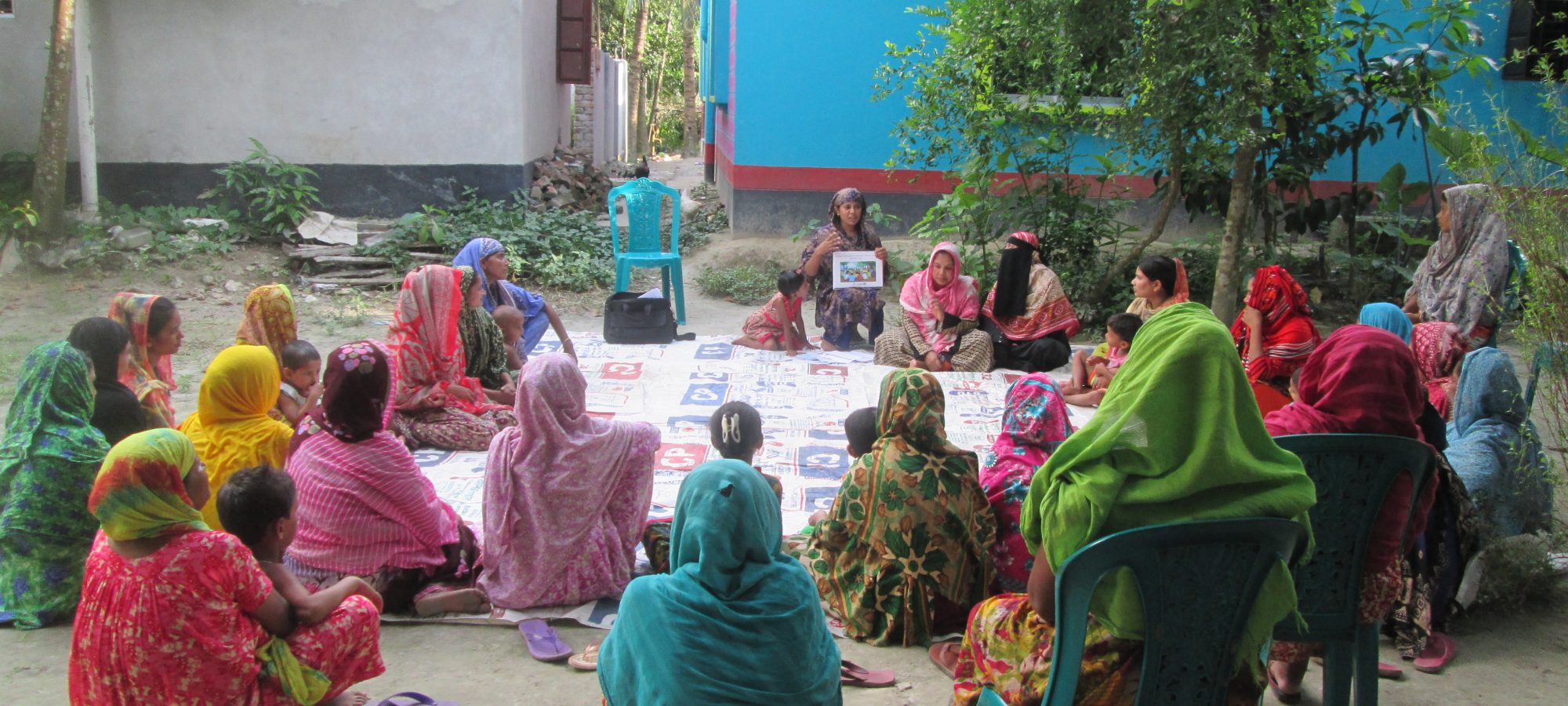The increasing threat of antimicrobial resistance
Antimicrobial resistance (AMR) is a global health threat, driven in part by the misuse and overuse of antimicrobial drugs. Microbes change over time and become resistant to medicines, thus making treatment of infections more difficult. It is estimated that by 2050, AMR will be a leading cause of death – causing an estimated 10 million deaths and costing up to 100 trillion USD globally. In low- and middle-income countries increasing rates of AMR is of particular concern, exacerbated by the accessibility of antibiotics, lack of primary healthcare coverage and education about antibiotics in the general population, fewer regulations for use of antibiotics in animal husbandry and agriculture and a lack of good water and sanitation resulting in poor hygiene.
Launched in 2021 by the University of Leeds, in partnership with Malaria Consortium and others, the Community-led Solutions to Antimicrobial Resistance (COSTAR) research project is exploring the use of community dialogues – a community engagement approach developed and pioneered by our organisation – to discuss health issues and identify locally relevant solutions to prevent and control AMR in Bangladesh and Nepal.

About the Community Dialogue Approach
Central to the community dialogue process are local volunteers, selected by the communities themselves. The chosen volunteers attend a workshop to receive training in how to be community dialogue facilitators – to guide subsequent interactive activities and discussions about the causes, consequences and prevention of AMR. These community influencers facilitate an initial mapping exercise, which also identifies members who may need extra help to attend the discussions or to interact with the information shared during the meetings. The meetings are held in accessible locations chosen by community members and participants discuss health issues and develop action plans, which are regularly reviewed, enabling communities to make and sustain healthy choices about antibiotic use.
A critical component of Malaria Consortium’s research in this COSTAR project was to assess whether our Community Dialogue Approach (CDA) is equitable, gender sensitive and participatory in increasing community ownership of and accountability for health issues. We are exploring whether the CDA can provide, and become a platform for, different subsections of the community to be effectively represented, heard and to partake in consensus building. This is essential for ensuring that critical health interventions are designed from the perspectives of the people whom they are intended to reach.
Why is mainstreaming gender important?
The UK Government’s latest International Development Strategy recognises the importance of gender equity in research and programming and reaffirms their commitment to unlocking the full potential and power of women and girls as a means to accelerate progress on global priorities, from economic prosperity to security. Malaria Consortium works to tailor our social and behaviour change (SBC) interventions to focus on improving equity through gender-responsive approaches for both men and women.
Gender can influence a person’s ability to access information and resources including healthcare and antimicrobial drugs, as well as influence their health behaviour. Engaging all genders in AMR discussions, appropriate to their needs, is an important step in contributing to addressing gender inequality more widely. In the initial pilot study, which the COSTAR project builds on, Malaria Consortium found that it was more difficult to involve men than women in the dialogues. After work, men typically go to the market and tea stalls to socialise, so the workshops for men are now conducted in the evening in venues near to the Bazaar.

During the formative research for the COSTAR pilot project, prospective dialogue participants were asked if they would prefer mixed or single gender groups. Mostly, separate groups for each gender were chosen, facilitated by someone of the same gender and who spoke the same language as the participants.
Striving for a representative balance of trainers, we purposefully recruited an equal proportion of men and women as trainers to conduct the workshops and train the community dialogue facilitators. We also took a gender lens to the research cycle, carrying out a Strengths, Weaknesses, Opportunities and Threats (SWOT) analysis to ensure that the research methodology, implementation and evaluation process was inclusive and equitable. We also ensured gender-sensitive language was used in community dialogue materials, research tools and related publications.
Leaving no one behind
Following the principle of leaving no one behind, we switched from the traditional, quantitative focus of measuring the number of people reached by or participating in the COSTAR project, to instead look at other social stratifiers and the demographics of those involved. In evaluating the success of the project, we will ask; who was involved, how they participated, who led the process, who made the decisions, if all voices were heard and valued and if there were any voices that we weren’t hearing. Through this, we will support the CDA participants to map who in their community is at risk of exclusion and discuss how to best support them to attend and engage with the dialogues.
Data collection and analysis

We also take an inclusive approach to data collection, by using tools that engage sections of the communities who are not always able to participate in research. We used carefully selected creative and participatory methods designed to engage people who might have been less confident with formal discussions and who might not have managed interviews or surveys well or had the necessary narrative skills. These methods included visual methods, creative diagrams, ranking and social mapping.
From AMR to wider health
Malaria Consortium has used the CDA in several settings other than AMR, from malaria to integrated community case management (iCCM) and neglected tropical diseases (NTDs). To find out more about our work in this area, you can read our new Social and Behaviour Change Capacity Statement.
Helen Hawkings is a Social and Behaviour Change Specialist
COSTAR project partners include University of Leeds, Malaria Consortium, HERD International (Nepal), ARK Foundation (Bangladesh), Chittagong Veterinary University (Bangladesh), University of Liverpool, University of Western Australia
